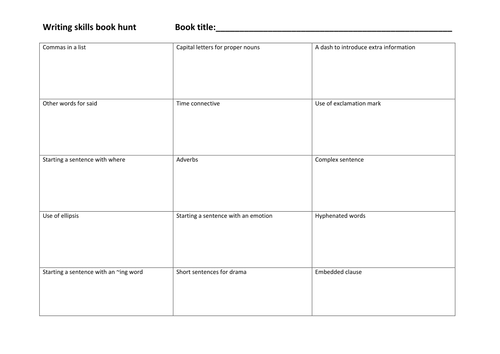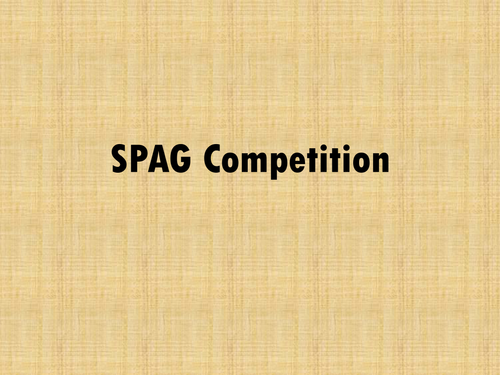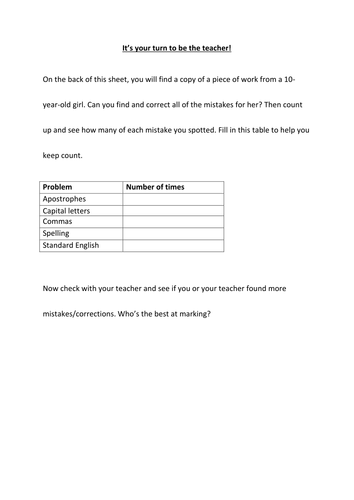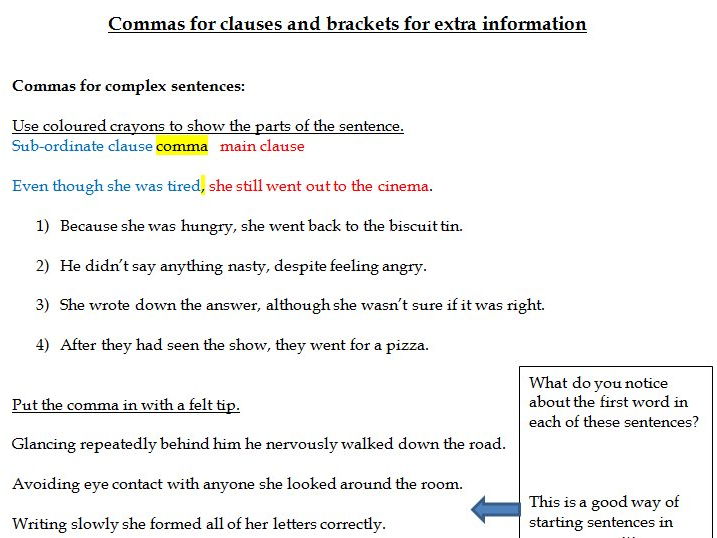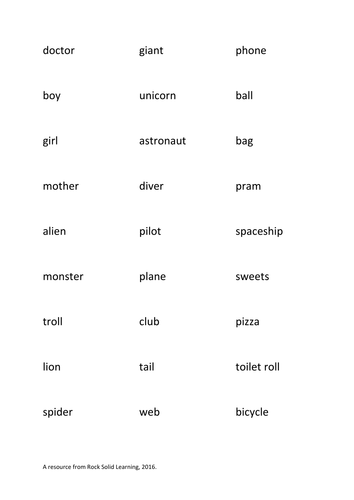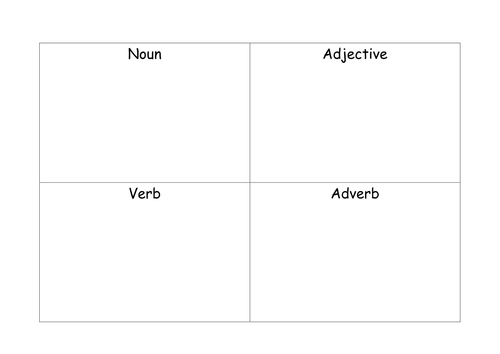46Uploads
41k+Views
16k+Downloads
English

Writing skills book hunt (skimming and scanning looking for key skills)
In this activity, pupils need a fiction book to hunt for examples of authors using writing skills. Writing skills needed include those such as short sentences for drama, starting sentences in different ways and using different words for 'said'. It also asks them to find examples of ellipsis, exclamation marks, proper nouns, hyphenated words and commas in lists, among other things.
For each of the skills/examples required, there is an example given on the sheet to act as a model and to remind the pupils in case they have forgotten.

SPAG competition quiz for KS2 Year 6 SATs revision
This quiz is ideal for two teams of between 4 and 8 but could probably be played with larger groups. It has four rounds including a buzzer round and speed round. There are questions that require team work and some that rely on every member of the team individually. Topics focus mainly on word classes, tenses, punctuation, synonyms and antonyms, clauses, phrases and pronouns.
Enjoy!

Editing for punctuation and spelling (marking, checking work, improving work)
In this activity, the pupil is challenged to act as the teacher and mark a piece of work. The text is a well-spaced A4 recount with a number of spelling and punctuation errors, including commas for lists and clauses, capital letters and homophone spelling mistakes. There is an answer sheet too.

Commas for clauses worksheets (subordinate, embedded, relative, brackets)
This resource comprises two differentiated two-sided worksheets. The first looks at identifying main and subordinate clauses, using ~ing words at the start of a subordinate clause, extending sentences with 'which', inserting brackets around clauses as a way of introducing embedded clauses. It also sees whether they can spot/identify relative clauses and relative pronouns.
The second (higher) double-sided worksheet looks at writing sentences with subordinate clauses (using conjunctions, ~ing words and 'which'). On the second side, it gives examples of embedded relative clauses and then asks the pupil to complete more sentences that have already been started.
I used this for homework and revision after the Y5/Y6 pupils had already been taught the main concepts and sentence constructions.

Alan Peat 2a sentences (adjectives, commas for lists)
A lesson to introduce Alan Peat's 2a sentences, presented in a word document so that it can be edited for your needs as required. Pages 1,2,4 can be presented on the IWB screen to the children. These involve the introduction, individual/partner activity using whiteboards and the instructions for the plenary activity (which involves editing and improving a previous piece of the child's English work with this new skill). Page 3 needs to be printed as the worksheet for the main activity (finding 2a sentences in a short story and then writing some of their own 2a sentences with prompts for ideas).

Apostrophes for possession / belonging / possessive
Here we have all of the resources for a lesson on possessive apostrophes that assumes some children will know the basics already. It would be good for the first lesson *you* have taught them on it, assuming they have done it sometime last year, or as a revision lesson after a long break.
It starts with the whole class reading an article and spotting missing apostrophes before focusing in on some whiteboard work using pictures as prompts. A partner work/table group game (which could be made competitive or even silly/funny if you like!) is then followed by some written activities to go in the book. Plenary and homework provided too!

Structuring answers about writers' skills using Point, Evidence, Analysis
This resource comprises two sheets. The first shows a model answer about Sir Arthur Conan Doyle's descriptive writing skills in The Hound of the Baskervilles, beginning with a simple answer, moving to a more detailed answer and finishing with some extra detailed analysis.
The second sheet is made up of prompts for sentence starters on making a point, introducing evidence from the text and beginning to explain what it means.

Word class sorting activity
Lists of nouns, verbs, adjectives and adverbs to be sorted into the correct boxes in a table. Use one column of words each time for a SPAG starter activity.

